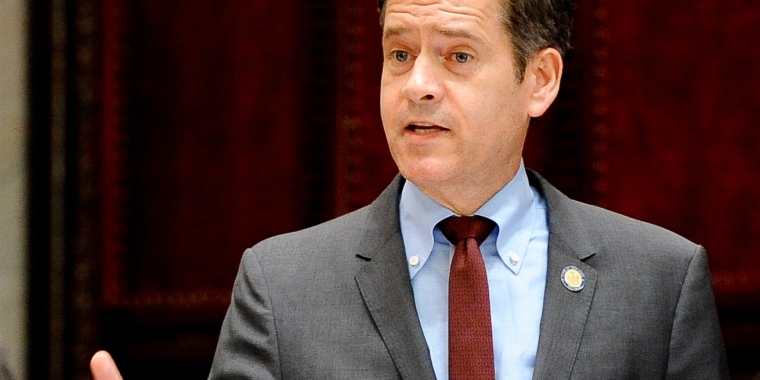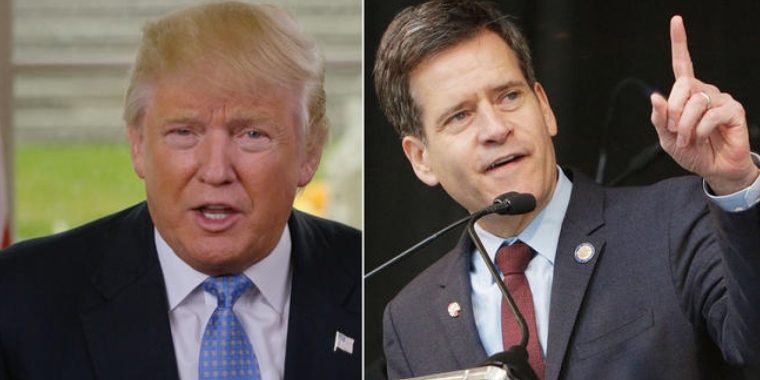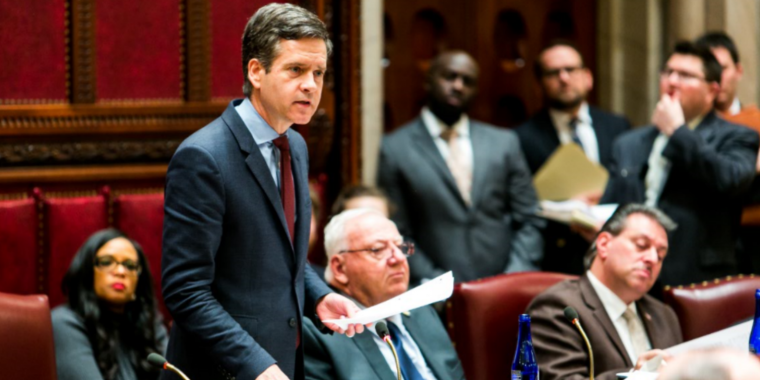
The TRUMP Act: Make Candidates’ Taxes Public

Days after assuming power, the Trump administration defiantly announced that President Trump would not release his tax returns. The reason? Simply put, they said that the people don’t care. The very next day, however, the administration backtracked, insisting that Trump’s taxes would not be released until an audit is complete.
President Trump’s most recent theatrics should come as little surprise.
New allegations that the Russian government may possess compromising information on the president, as well as reports that six different intelligence and law enforcement agencies have opened investigations into ties between top Russian officials and Trump’s presidential campaign have raised new concerns — and familiar excuses — about his taxes.
But with a Republican Congress showing little appetite or interest in pushing the issue, it’s left to the states to take up the mantle of constitutional and democratic integrity.
Here in the New York State Senate, I introduced the Tax Returns Uniformly Made Public (TRUMP) Act to require presidential and vice presidential candidates to release their income tax returns as a prerequisite to appear on New York’s ballot.
Under the provisions of the TRUMP Act, any candidate for president or vice president would be required to file at least five years of federal income tax returns with the state Board of Elections no later than 50 days prior to the general election. The B.O.E. would then have 10 days to redact personal information and make the tax returns publicly available. Failure to comply would disqualify a candidate from appearing on the state’s general election ballot.
Such legislation enshrines in law what was until recently a fundamental political norm. Going back to the 1970s, every candidate for president has released their tax returns, giving the public a window into their financial holdings and potential conflicts of interest.
Moreover, because presidents are exempt from most federal conflicts-of-interest laws, tax information offers voters their only real opportunity to view candidates’ financial standings, including income and debts, investments, loopholes utilized and — in Trump’s case — a list of business connections and interests.
The practice of releasing tax returns has become a political norm because all Americans believe presidential candidates should be held to a higher standard of transparency.
Yet, during the 2016 election, while his opponents — Republican and Democrat alike — willingly adhered to this norm, Donald Trump stubbornly refused to release even one year’s worth of returns.
And despite administration and campaign claims to the contrary, it is something voters care about. A recent ABC News / Washington Post poll found that 74 percent of adults want Donald Trump to release his tax returns, with four in 10 saying they care “a lot” about the issue.
Additionally, a national survey released last week by Public Policy Polling showed that Americans support the idea of the TRUMP Act by a 54-34 percent margin. That poll comes on the heels of another PPP survey released two weeks ago showing 54 percent of voters in the presidential swing state North Carolina would support a version of the TRUMP Act.
State legislatures around the country are taking note.
Since I introduced the TRUMP Act, legislators in five other states — Massachusetts, California, Rhode Island, New Jersey and Virginia — have already introduced a version of my bill. And legislators in another eight — Maine, Maryland, Hawaii, New Mexico, Pennsylvania, Minnesota, Oregon and Colorado — have made commitments to do so soon.
All told, the coalition of TRUMP Act states represent upward of 90 million voters and 195 Electoral College votes — well over half the total needed to carry the presidency.
Additionally, a change.org petition calling for passage of the TRUMP Act has garnered more than 133,000 signatures.
And in an endorsement of the TRUMP Act, The New York Times editorial board consulted the eminent constitutional law scholar Laurence Tribe, who argued that my bill would withstand constitutional scrutiny.
“It seems that New York might be able to simply add tax disclosure as a procedural ballot access requirement,” Tribe stated.
When long-standing democratic norms are broken, it becomes necessary to protect them through law. That’s the purpose of this legislation. The public deserves to know if nominees practice what they preach and that personal priorities will never take precedence over the national interest.
As with all things in our democracy, it will take the active support of citizens to make change happen.
On Tax Day, the public will have that chance. People across the country will take to the streets in a Trump’s Tax Day March to protest the president’s refusal to release his returns.
The Trump administration claims that Americans don’t care about his taxes. It’s time to prove them wrong. I will be out there on Tax Day, and I hope to see you out there, too. Our democracy depends on it.
Hoylman is state senator, Manhattan’s 27th District



